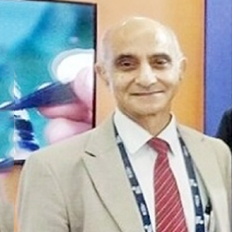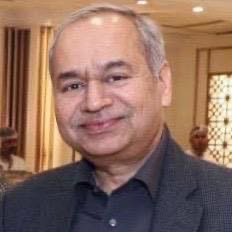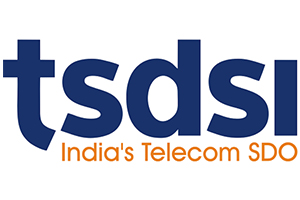Quantum communication: Secure connectivity across the quantum worlds

Dr Manjunath Ramachandra
Dr Manjunath Ramachandra is working as the principal consultant for the advanced Research group of the CTO office in Wipro Limited. He is a part of an inter-ministerial advisory group on quantum communications. He is the champion for the quantum communication TRIP forum in Telecommunication standards development society of India

Mr. Dilip Singh
Dilip Singh, is the CTO of QNu Labs . QNu Labs is at the forefront of creating Indigenous Quantum Tech for secure communications. Dilip is an active member in multiple forums focused on standardization of Quantum Secure Communication in India.
Secure communication is always a challenge. While numerous tools and techniques exist today to address this issue, the hackers are always a step ahead. Breach of security can lead to compromise in sensitive information, manipulation of the data, introduction of malicious data or code etc. The traditional key based cryptography has become vulnerable for attacks. Today, hackers have adequate computing power to retrieve the key from the encrypted text in real time. The loophole here is the continuation of the communication as the message sending patty is unaware of the compromise. An alert when the intruder meddles with the encrypted data or the key that gets transferred to the receiver would be very helpful to stop further damage. In addition, if it is possible for the sensor of the message to replicate the information at the receiver without the help of the underlying channel, the issue of intruder does not arise at all ! Quantum communication supports both these paradigms.
Working of the mechanism
Quantum communication encompasses a plethora of technologies. Quantum key distribution (QKD) and quantum teleportation are the two important components. They make use of the entanglement of the states wherein a (quantum) system of two states, one each at the sender and the receiver are created such that manipulation of any of them will get reflected at the other system. It is one of the weird and not so intuitive behaviors of quantum systems. The other important concept used in quantum communication is the measurement of the state. Measurement alters the state. For example, if we read a RAM any number of times, the bit pattern remains the same unless we change the data, or the memory goes bad! This is not true in the quantum world. Once the state is measured or “read”, it can change!
Equally weird is the teleportation wherein it is possible to transfer the information from the sender to receiver without actually throwing the data over the channel. [1] As it is different from normal communication, it is several orders faster than the conventional communication system. It is worth to note that the transfer is the information rather than the signals.
In QKD an entangled system is created between the quantum systems (Qbits) of the sender and the receiver The key to be transferred I to the receiver is sent over the quantum channel. Whenever an intruder intercepts the key, the entanglement breaks down and is immediately made known to both the sender and the receiver. Alternatively, a successful transfer of the key leads to subsequent usage of the same for encryption of the data over normal communication channels. Here the role of the quantum channel is to securely transfer the key for the encryption of the data that follows.
The architecture
Most of the implementations used today are based on the BB84 QKD system [2,3]. A simple QKD system is detailed here. It consists of the following components
- Random number generator. The key for data encryption (actually a super set of the key; some bits would get discarded as we see here later) is not stored but generated as a random sequence of bits. Quantum Random number generator is often used to generate the bits independent of the previous history or the environment so that no known algorithm should be able to predict the next bit
- Random basis generator: The random bits generated by the previous module are mapped at random to rectilinear or diagonal basis. The rectilinear basis comprises vertical and horizontal polarization states corresponding to the bits 0 and 1. The diagonal bases are formed from a 45 degree or 135 degree polarization state.
- Photon pupariation: polarized (single) photons are generated based on the choice of the basis in the previous module. Subsequently the photon is put on the channel- the dark fiber channel or quantum channel. The basis, state and time of transmission are noted. Open-air as well as satellite channels have been tried.
- Detector: In the receiver, basis functions are selected at random for the measurement over the photon. Accordingly, the polarization states are derived that may be right or wrong based on the coincidence between the sender and receiver basis functions. The decoded polarization, basis function and the time are noted. All this data gets exchanged over public channels. The bits corresponding to non-coincidence of basis functions are discarded. What remains would be the Key for encrypting the data that follows over classical or normal channels. If an intruder measures or alters the state of single photons, it results in errors. These errors are detected by setting appropriate thresholds. Some errors are tolerable in a long sequence of the key. i.e., even if a few bits are compromised, we can still go ahead with the key.
The challenge ahead
While quantum communication technology is attractive, providing a fool proof mechanism to transfer data, it throws open a set of challenges. The technical challenges include [4] design of high SNR single photon detectors, transfer of information across the repeaters (without destroying the states), interface (and integration) with the classical infrastructure, quantum noise etc.
The operational challenges include the setup of quantum channels, last mile connectivity, distribution of the load etc. The channels can be fiber (dark channel) or satellite or open air that requires a large number of repeaters or trusted nodes
Adoption of the technology has to happen at a large scale. Standardization bodies play a crucial role here in bridging the gap between the theoretical concepts and deployable implementations. Still there are white spaces in the standards due to the emerging use cases, advancements in the technologies and region-specific customizations that need to be addressed. Open Source implementation of these standards encourages the industry for a wider adoption along with differentiating features.
Quantum teleportation, although very attractive, is still in its infancy. The catch is, it works only after the entangled pair is created. In addition, transfer of large data such as a video from a Rover on Mars is a distant dream. However, control signals (such as camera or Rover control) can be easily teleported once an entangled pair is created, it should be possible to steer a Rover on Mars in the direction of choice in real time rather than waiting over several minutes.
Future directions
Depending on the degree of penetration, quantum communication can enable a variety of use cases. Finance industry has already started leveraging the technology in providing secure transactions such as the one with ATMs. [5].
Apart from finance, QKD is the most sought-after technology in the defense industry. Secure communication over short distances is the critical requirement here.
The cable industry distributing the content can use the Quantum channel for the secure transfer of the Key. Subsequently, the content gets decrypted with the key and distributed further.
Quantum internet is not too far from a large-scale deployment. Before that, the interfacing issues and relay problems are to be resolved
References
- https://www.nature.com/articles/s41598-022-06853-w
- C. H. Bennett and G. Brassard. Quantum cryptography: Public key distribution and coin tossing. Proceedings of IEEE International Conference on Computers, Systems and Signal Processing, vol 175,1984
- https://www.uts.edu.au/sites/default/files/2020-11/Zhang__A_quantum_random_number_generator_integrated_into_a_transmitter_of_BB84_QKD_system.pdf
- https://quantlr.com/quantum/the-5-most-significant-challenges-facing-quantum-cryptography/
- https://www.sktelecom.com/en/press/press_detail.do?idx=1459
Standardization and Indian Start-ups/MSMEs ecosystem
Keywords: Start-up ecosystem, Standards Driven Research

Mr. PK Jaswal
Consultant (Process Quality IT & Membership Development) TSDSI
Email – pkjaswal@tsdsi.in

Mr. Amit Gupta
Advisor (Membership Development and Start-ups Strategy)
Email – amit.gupta@tsdsi.in
India’s Telecom consumption continues to grow rapidly, however there is a heavy dependence on imports (close to 90%) for Telecom Equipment. The Telecom Start-ups are driving innovation focused on addressing India’s requirements and there is an important need for global harmonisation. India’s requirements are akin to those of several other developing countries. It is important that the Indian Start-up ecosystem actively contributes to development of Telecom Standards, by contributing use cases and innovations.
With special focus on start-ups within TSDSI, the Telecom SDO for India, had commissioned a study and came out with a white paper in 2020 on Status of Telecom Start-up Ecosystem in India (https://tsdsi.in/startup-white-paper/). Numerous C-level executives of domestic Deep Tech start-ups were interviewed to get insights into real life challenges being faced by the ecosystem. Best practices of select countries (South Korea, Israel, Singapore, USA & China) with successful start-up ecosystem in Telecom were also studied.
The white paper identified gaps related to:
- the current policy framework,
- financial support model,
- industry associations,
- public/private sector collaborations and
- systems for promoting innovation & development of standards.
The white paper made specific recommendations to be implemented by various agencies as listed below. (A few recommendations are already being actioned):
- Government (DoT / TRAI / MeitY / DST):
- Single Window Access for All Start-up Schemes – Bharat Digicom Portal is being developed to address this.
- Foster Start-up friendly Business environment – Following initiatives address this:
- Mandating offerings and solutions from domestic MSMEs/Technology companies for building critical infrastructure of the country. (AatmaNirbhar Bharat Abhiyan).
- Organizing trade shows and events to show case products and offerings from Start-ups / MSMEs.
- Formulating Policies which can provide impetus to start-ups/MSMEs and the industry, like
- PLI – Production Linked Scheme for large scale Electronics Manufacturing and attract large investments (mobile phones, other electronic equipment).
- The Rs 76,000 crore PLI for Silicon manufacturing in India – will be a real game changer as current semiconductor demand is entirely met thru imports.
- Successful 5G Spectrum auction in India in July 2022: This will open up floodgates for not just high-speed services from Telcos but has immense potential for innovative enterprise applications like Industry 4.0, M2M, V2X, Metaverse, etc
- Promote culture of Innovations (and Standards Development) – Following initiatives are addressing these:
- Support creation of a 5G Testbed to enable start-ups and industry to test and validate their products instead of going overseas for this (5G Test bed as a multi-institute collaborative project lead by IIT Madras).
- Providing opportunity to carry out field trials for innovative solutions (Millimeter-wave E-Band backhaul providing fibre-like capacity for 5G in rural India).
- Encouraging start-ups/MSMEs to come up with Innovations which can be taken to the global SDOs thru TSDSI to make them into international standards (eg. 5Gi becoming part of ITU 5G standards to cater to India’s rural connectivity needs by providing longer cell range.)
- Coming up with several schemes for funding / grants (“Digital Communications Innovation Square” scheme from DOT/TCoE India, increasing options from private funds).
- Promoting focus within start-ups/academia/industry on upcoming Technologies (multiple task forces created for 6G).
- TSDSI:
- Start-up Strategy Task Force – The Task Force is actively engaging and handholding Start-ups to enable them to successfully participate in Standards Development. The Task Force is also actively engaged in Bharat Digicom Portal.
- Standardisation Promotion Corpus – Measures have been taken to provide membership fees subsidies to Start-ups to participate in ITU, 3GPP and oneM2M. Financial support to enable them to travel Global SDO meetings is also being considered.
- Standards driven Research (along with Academia) and Patent generation – Standards Driven Research Task Force is actively driving several initiatives. Standards driven Patenting Strategy is to be worked on.
- Framework for Use case Labs –This is being driven jointly with DoT as an Inter-ministerial initiative. Use case Labs for BFSI sector has been established, similar discussions are ongoing for other Vertical segments.
These are exciting times for the Start-up ecosystem in India. India has become the 3rd largest start-up ecosystem in the world after US and China. As of 19th July 2022, there are 74,400 DPIIT recognized start-ups across 653 districts of the country. Till FY 2016-17, the country was adding approximately one unicorn per year. This number has been increasing exponentially over the last four years with the current tally at 105 unicorns with total valuation of about US$338.5B. (source: Invest India). Many unicorns are exploring public listing to realise their growth ambitions and have gone for IPO and many more are exploring it actively.
Start-ups & MSMEs have been a very active part of the membership at TSDSI and have grown by 100% in last 18 months. Their contributions to the technical activities and organization building in terms of assuming leadership roles in various task forces and technical groups has been very significant. In the recent past, the start-up members have made over 30 technical contributions in TSDSI. Executives from 10 start-up members have held key organizational positions within TSDSI including the role of its Chair. There is definitely a growing awareness in the Start-up community that global competitiveness is directly related to their ability to successfully participate in Global Standards development.
We look forward to connecting with all of you, understanding your needs and challenges and enabling you to become globally competitive.

